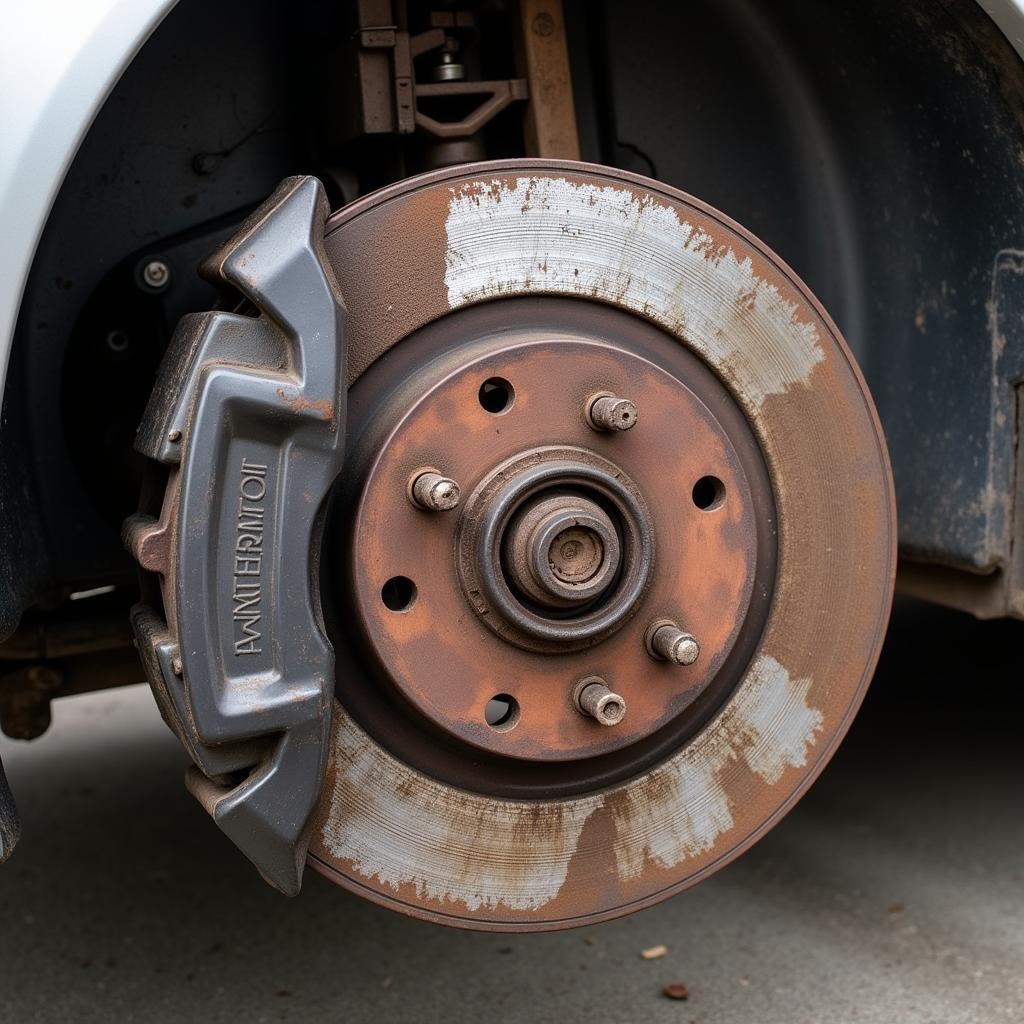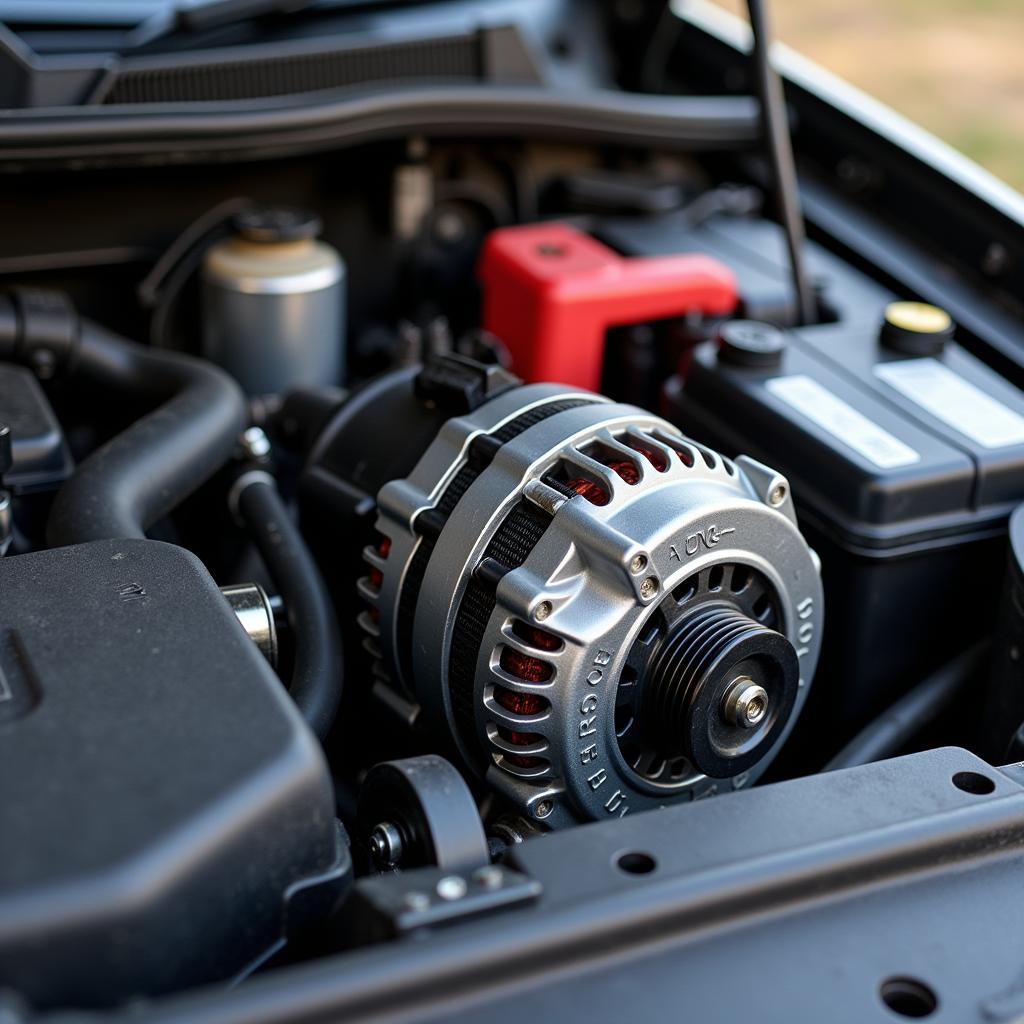The 1998 Toyota Camry brake warning light can be a source of anxiety for any driver. This light signals a potential issue with your braking system, which is critical for your safety on the road. This comprehensive guide will help you understand why your 1998 Toyota Camry’s brake warning light might be on and provide practical solutions for troubleshooting and fixing the problem.
Understanding why your brake warning light is illuminated is crucial for addressing the issue effectively. Several factors can trigger this warning, ranging from a simple fix like low brake fluid to more complex problems like worn-out brake components. Let’s delve into the common causes and explore solutions.
Common Causes of a 1998 Toyota Camry Brake Warning Light
Several factors can trigger the brake warning light in your 1998 Toyota Camry. Here are some of the most common culprits:
-
Low Brake Fluid: This is the most common reason for the brake warning light to come on. Low brake fluid can indicate leaking brake lines, worn brake pads, or a problem with the master cylinder.
-
Worn Brake Pads: As your brake pads wear down, the brake fluid level drops, triggering the warning light. This is a normal part of brake wear and tear.
-
Faulty Brake Light Switch: The brake light switch activates the brake lights when you press the brake pedal. A malfunctioning switch can also illuminate the brake warning light.
-
ABS Issues: If your Camry is equipped with Anti-lock Braking System (ABS), a problem with the system can trigger the warning light. This could indicate a sensor issue or a problem with the ABS control module.
-
Parking Brake Engaged: Sometimes, the simplest explanation is the correct one. Make sure your parking brake is fully disengaged.
Troubleshooting the Brake Warning Light
Here’s a step-by-step guide to help you troubleshoot your 1998 Toyota Camry’s brake warning light:
-
Check the Parking Brake: Ensure the parking brake is fully released.
-
Inspect the Brake Fluid Level: Open the hood and locate the brake fluid reservoir. The fluid level should be between the minimum and maximum marks.
-
Check for Leaks: Inspect the brake lines and calipers for any signs of leaks. Look for wet spots or dripping fluid.
-
Inspect Brake Pads: Visually check the brake pads through the wheel spokes. If they appear thin, they likely need replacing. Remember to check both front and rear brakes.
“Regular brake inspections are crucial for maintaining your vehicle’s safety and preventing costly repairs down the road,” says John Miller, a certified automotive technician with over 20 years of experience.
 Worn Brake Pads on a 1998 Toyota Camry
Worn Brake Pads on a 1998 Toyota Camry
What to Do When the Brake Warning Light Stays On
If the brake warning light remains illuminated after checking the above, it’s time to seek professional help. A qualified mechanic can diagnose the problem using specialized diagnostic tools and perform the necessary repairs. Ignoring a persistent brake warning light can lead to serious safety issues.
Why is my brake warning light flashing?
A flashing brake warning light often indicates a more serious problem, potentially with the ABS system. It’s crucial to get this checked immediately by a professional.
“Addressing brake issues promptly can prevent further damage to the braking system and ensure your safety on the road,” adds Sarah Johnson, an automotive safety expert.
1998 Toyota Camry Brake System Maintenance
Regular maintenance is key to preventing brake problems. Follow your Camry’s recommended maintenance schedule for brake inspections and fluid changes. This will help keep your brakes in optimal condition and extend their lifespan.
Conclusion
The 1998 Toyota Camry brake warning light serves as a vital indicator of potential brake issues. By understanding the common causes and following the troubleshooting steps outlined above, you can address many of these problems yourself. However, always remember that a persistent brake warning light requires professional attention to ensure your safety and prevent further damage to your Camry’s braking system. Don’t delay in addressing this important safety concern.
FAQ
-
What is the most common reason for the brake warning light to come on? Low brake fluid is the most frequent cause.
-
Can I drive my Camry if the brake warning light is on? It’s not recommended. You should investigate the cause and get it fixed as soon as possible.
-
How often should I check my brake fluid level? Check it at least once a month and before any long trips.
-
How much does it cost to replace brake pads? The cost varies depending on the type of brake pads and labor rates.
-
What is ABS, and why is it important? ABS stands for Anti-lock Braking System. It prevents wheel lockup during hard braking, improving control and stability.
-
How often should I have my brakes inspected by a professional? Follow the manufacturer’s recommended maintenance schedule for brake inspections.
-
Can worn brake pads damage my rotors? Yes, worn brake pads can score the rotors, leading to reduced braking performance and potentially requiring rotor replacement.

